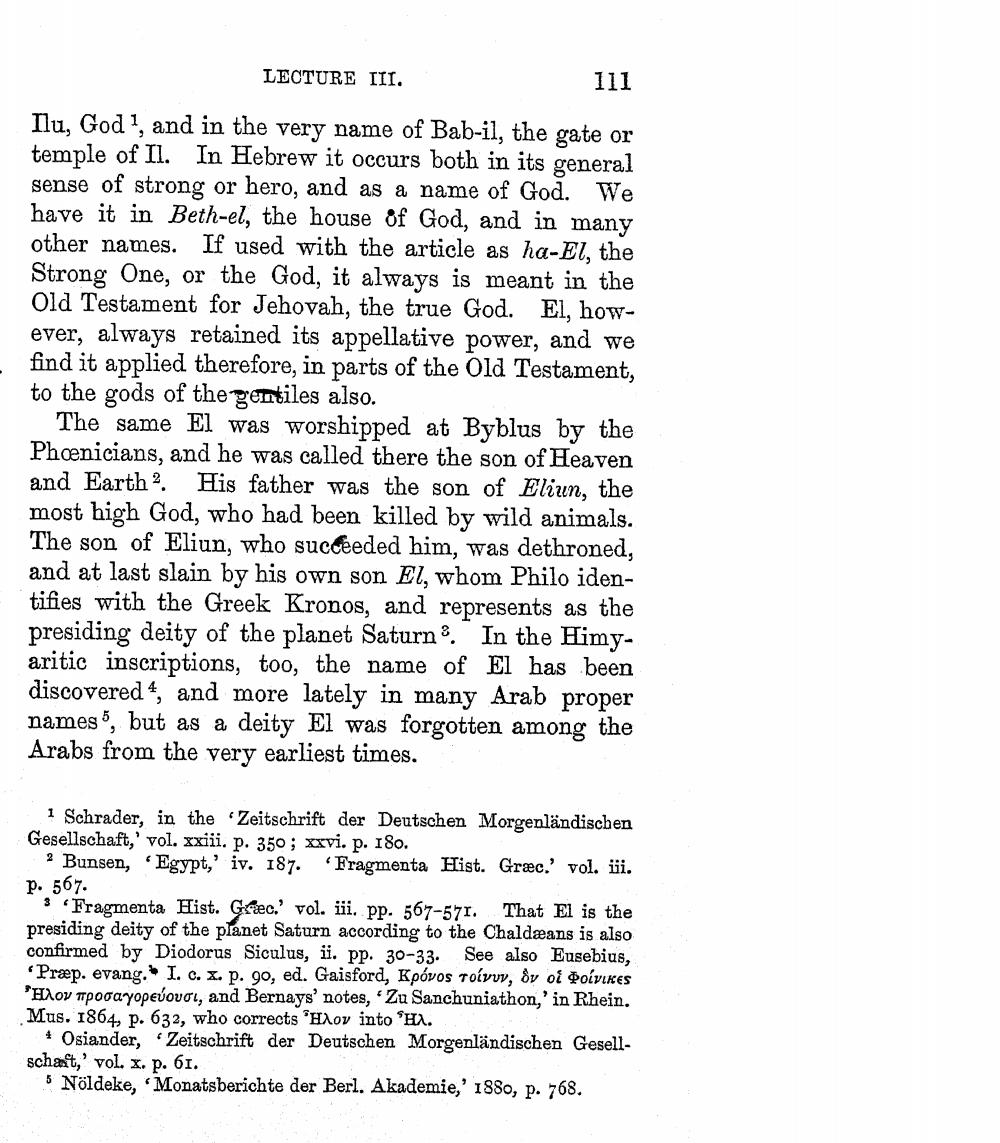________________
LECTURE III.
111 Ilu, God 1, and in the very name of Bab-il, the gate or temple of Il. In Hebrew it occurs both in its general sense of strong or hero, and as a name of God. We have it in Beth-el, the house of God, and in many other names. If used with the article as ha-El, the Strong One, or the God, it always is meant in the Old Testament for Jehovah, the true God. El, however, always retained its appellative power, and we find it applied therefore, in parts of the Old Testament, to the gods of the gentiles also.
The same El was worshipped at Byblus by the Phoenicians, and he was called there the son of Heaven and Earth?. His father was the son of Eliun, the most high God, who had been killed by wild animals. The son of Eliun, who succeeded him, was dethroned, and at last slain by his own son El, whom Philo identifies with the Greek Kronos, and represents as the presiding deity of the planet Saturn. In the Himy. aritic inscriptions, too, the name of El has been discovered 4, and more lately in many Arab proper names, but as a deity El was forgotten among the Arabs from the very earliest times.
1 Schrader, in the Zeitschrift der Deutschen Morgenländischen Gesellschaft,' vol. xxiii. p. 350 ; xxvi. p. 180.
2 Bunsen, Egypt,' iv. 187. Fragmenta Hist. Græc.' vol. ii. p. 567.
3 Fragmenta Hist. Graec.' vol. ii. pp. 567-571. That El is the presiding deity of the planet Saturn according to the Chaldæans is also confirmed by Diodorus Siculus, ii. Pp. 30-33. See also Eusebius,
Præp. evang. I. c. X. p. 90, ed. Gaisford, Kpovos Toivuv, 8v oi Þoivikes 'Hlov poga yopevovoi, and Bernays' notes, 'Zu Sanchuniathon,' in Rhein. Mus. 1864, p. 632, who corrects Hov into 'HA.
* Osiander, Zeitschrift der Deutschen Morgenländischen Gesellschaft,' vol. x. p. 61.
5 Nöldeke, Monatsberichte der Berl. Akademie,' 1880, p. 768.




